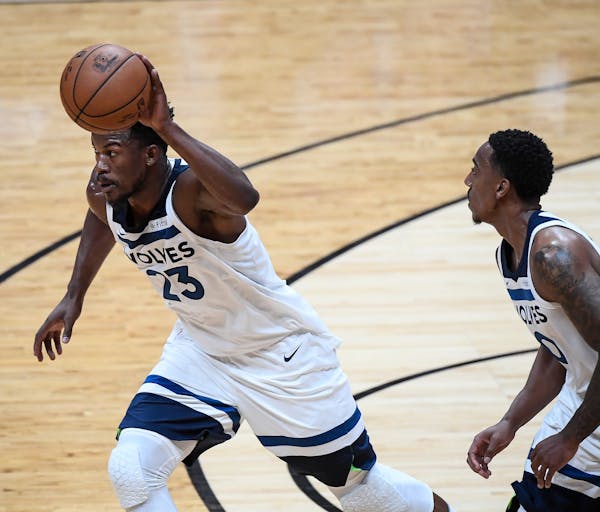Doris Burke has gained a reputation over the years as a thoughtful and respected basketball mind, whether she's working as a sideline reporter or game analyst. Recently, she accepted a role as a full-time ESPN NBA game analyst — making her the first female to hold that post on a national level in the NBA. Burke chatted about her career with the Star Tribune's Michael Rand.
Q: What does this new role mean to you in the big picture of your career?
A: What it means, honestly, is every person I think in their chosen field or endeavor, you pursue the highest level you can ascend to. You put your head down and you work really hard, and you hope that opportunities follow. I am very much like that. I always say to young broadcasters: Do not worry about where you are. Don't worry about the jobs you got or didn't get, just put your head down and do the absolute best job with the assignment that is right in front of you. I'm not naive. I understand that this is a huge opportunity for maybe some young women broadcasters to hopefully change their perspective on what they can aspire to. One thing I've always been mindful of is I don't want ever do something professionally that might hurt the woman who comes after I do. I understand there will be a number of women who will follow, and hopefully I make their path a little easier.
Q: I don't think I know anyone who doesn't like your work, which is rare. That said, I imagine critiques and hurdles were inevitable along your career path?
A: You're making me smile. In the age of social media, where there is an awful lot of noise — let's just call it noise — you can get discouraged if you pay attention to it. You really can. I'm not going to tell you that I haven't been hurt by it or wished it were different, but over the course of my career, which is getting longer by the day, there are little moments that have meant a great deal to me. Gregg Popovich, I was in his office pregame one time, and on that particular night I was the analyst for the game … I remember him saying after someone asked a question, 'Doris, you're a basketball person. You'll get this.' I couldn't describe to you what that moment felt like for me. I would be lying if I said I was anything but nervous when sitting in the analyst chair for an NBA game. I haven't played in the league or coached in the league. But to have someone like Gregg Popovich acknowledge in some way, shape or form that I understood what I was doing and that he was OK with it meant a great deal to me. ... There are little moments like that, and they tend to cancel out whatever negativity comes from social media. What I tend to find increasingly is that criticism of me comes down to a stylistic preference. It is a noticeable shift to me that if there is an objection to me, it's more that maybe someone just doesn't like the way I do my job as opposed to objecting to my gender, and that is an amazing feeling. If you don't like my style, I'm cool with that.
Q: You referenced advice you give young broadcasters. Specific to gaining credibility, what do you tell them?
A: Every team knows the hardest workers. Every team knows the players who put the group ahead of themselves. I'd say I offer that same piece of advice. You have to put in the work because you can't fake it. Everybody knows when you are feigning whether or not you have done your job.
